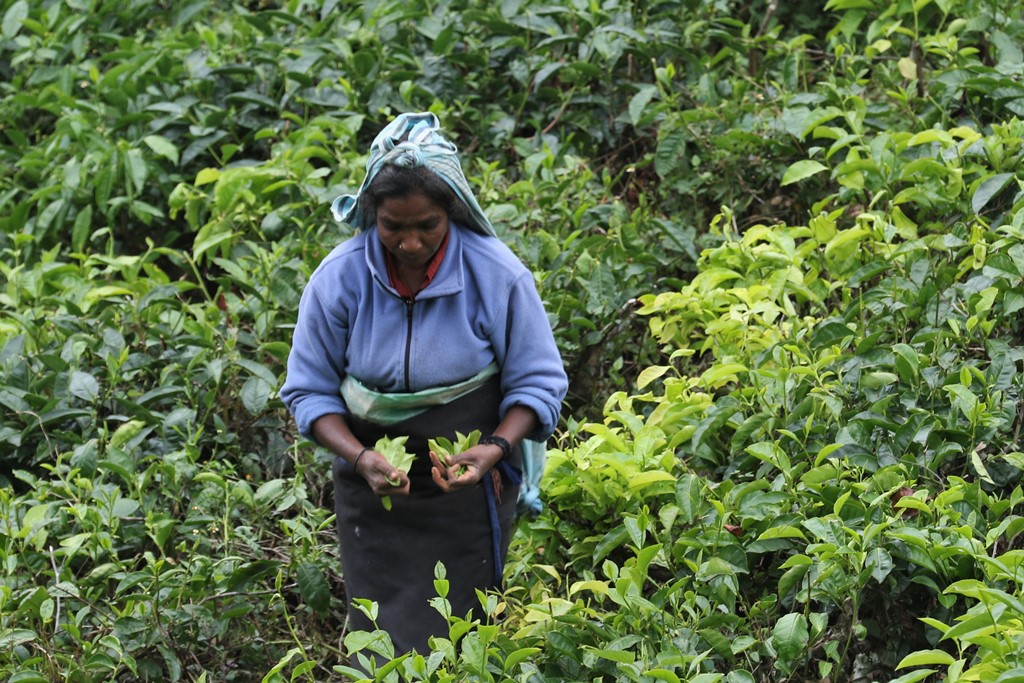Up-country Tamil Plantation Community (Estate sector)
FACTS
Estate sector workers are predominately Tamil, of Indian origin and Sri Lankan citizens. They have been working in Tea plantations for 150 years now.
They are among the most disadvantaged and disempowered groups, with average life expectancy and literacy below the national average, and an infant mortality rate higher than the national average. According to the DHS 2006-07, 64% of the estate population were in the lowest wealth quintile (World Bank 2017).
The poverty headcount ratio, measured by the national poverty line, in the estate sector is 10.9%. Despite their higher rates of poverty, the estates have the lowest percentage of recipients of social safety net benefits compared to the rest of the country (World Bank 2017).
RECOMMENDATION
- Initiate a major programme of uplifting the life Tamil plantation community, including a targeted poverty alleviation programme.
Almost 44% of estate residents live in one-room dwellings; units of less than 500 square feet (World Bank 2017).
Estate sector has the lowest monthly wages. (In SLR: Urban 69,880 Rural 41,478, estate 30,320, Central Bank SL).
RECCOMENDATION
- Address the housing issue of Tamil plantation community as priority and take maximum efforts to raise their monthly wages.
The estate sector population has the worst nutrition outcomes in Sri Lanka. 38.4% of children were anaemic and the prevalence was even higher among the younger age group of 6–23 months old (53.1% compared to 30.4% for 24-59 months old). Anemia prevalence among pregnant women was also substantial, with a third of them being anemic. Eight years ago this figure stood at 36.4% as reported by the DHS 2006–07, further indicating insufficient improvement. To summarize, malnutrition in the estates is widespread and significant among both children and pregnant women (World Bank 2017).
More than 92% of the estate sector water supply, at source, was contaminated with E. coli. Only 5% of the water samples at household level and crèches were clear of E. coli. There were substantial differences by estate types, with the government estates being the most unclean (38.9%) and the RPC estates being the least unclean (7.3%). This difference is also visible in toilet availability. Less than a third (30%) of the crèches either did not have any toilet or lacked a proper toilet (World Bank 2017).
RECOMMENDATION
- Provide nutritional food supplements to pregnant mothers and children under 5 years of age in the plantation Tamil community. Provide toilet facilities to all crèches in the sector.
Poverty remains multi-dimensional. The data on a number of issues other than income/ expenditure, such as housing, drinking water, sanitation facilities and education, indicate that the estate community, in comparison to the rest of Sri Lanka, is more vulnerable.
Compared to the rural and urban sectors, the estate community has a low educational attainment. In a country where education is key to coming out of poverty, the lower educational attainment makes people from the estates less eligible for participating in technical and vocational job related training and/ or jobs and is likely to create long-term vulnerability.
The evidence suggests that despite the fact that poverty head count has reduced in estate sector, the estate community has not turned the corner, and poverty in its various manifestations is still a reality ( CEPA 2015).
RECOMMENDATION
- Launch a programme to enhance educational and recreational facilities to the plantation Tamil community.
- Set up a task force with well-defined programme, clear bench marks and time lines to improve the socio-economic situation of the plantation community; provide adequate financial resources for the implementation.
Sri Lanka BRIEF/ UPR Papers – 03/2017 read as a PDF SLB UPR Papers 03 Up-country Tamil Plantation Community (Estate sector)
